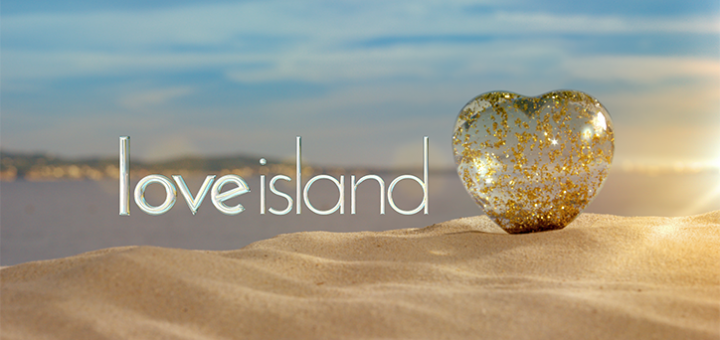Why I love Love Island

How one British reality television show gets the genre right
By Colin Macgillivray, Arts Editor
Since the inception of the genre, there has never been anything more fascinating than watching real humans compete, interact or fall in love through the lens of a camera. Whether it be rich moms fighting over mixed drinks, or estranged family members competing to see who can eat the most rotting fish, reality television has almost justifiably dominated television screens for decades.
But, most of the time, reality television absolutely sucks. The generally abhorrent nature of reality television — fabricated feuds, toxic producing and editing nightmares — makes the genre, for lack of a better term, lowbrow. It’s looked at as the guilty pleasure genre of television, not something that real fans of film and television enjoy.
But I — a self-proclaimed film fanatic and television taskmaster who sits here typing this at two in the morning after binge-watching my new favourite reality television show — proclaim that reality television is actually the highest and most pure form of entertainment. The aforementioned show (that I just enjoyed four hours of) is everything about reality television that I love.
It has drama, comedy, romance and ridiculous vocabulary all mixed into brilliant 45 minute sequences of unabashed entertainment.
I’m talking about Love Island.
Love Island is arguably one of the simplest reality shows, in terms of concept, I’ve ever seen. Six guys and six gals — who are all incredibly attractive and looking for love — are put into an extravagant villa where they mingle and chat all day long. They are forced to couple up and because there are an even number of guys and girls, the first few episodes is about the contestants getting to know who they have coupled up with, whether they want to switch partners with another couple and so on and so forth. It seems relatively simple and boring at this point, but here is when the excitement begins.
Periodically, more “Love Islanders” will enter the villa, causing an imbalance to both the numbers of guys and girls in the house, but also to the blissful ignorance of the original islanders.
Again, this might seem incredibly boring to most of you, but trust me, this show is one of the most gripping and enthralling television experiences out there. Love Island strips away all the nonsense that makes shows like The Bachelor and The Bachelorette so corny and ridiculous and showcases love at its most raw.
There are no challenges, there are no ridiculous rose ceremonies. There are no extravagant helicopter dates or awkward two-on-one dinners. It’s a bunch of British 20 year olds getting into relationships, falling in love, meeting someone new and breaking up. All in the span of about 12 hours.
Love Island strips away all the nonsense … and showcases love at its most raw.
Because there is absolutely nothing to do in the villa — other than drink alcohol, smoke cigarettes, workout and sleep — the contestants of Love Island usually preoccupy themselves by creating drama and meaningless fights in the most natural sense. When people have nothing else to do, emotions generally run higher than anything else. When all those people are young, relatively immature, ridiculously good looking and all looking for love, you have the perfect recipe for entertaining reality television. People will “couple up” just for the sake of coupling up. Arguments will start just for the sake of arguments. It’s delightfully organic and it is exactly what most reality television is missing.
Most reality television is not reality. It’s heavily edited, over-produced and largely scripted to fit a desired narrative. Now, I’m not saying that Love Island brilliantly captures the nuance and beauty of genuine human relationships, but it also kind of does. As the audience, we are able to witness the ups and downs of a relationship — something that the majority of us have experienced — condensed into the most hilarious and pure way.
Gone is the courting period where, as millennials, we aimlessly send text messages until one of those involved is brave enough to ask the other on a date. In Love Island, they see each other and immediately get together.
The honeymoon phase exists, but in Love Island, it is the happiest two-to-three hours of these young lovebirds lives. It’s true bliss, as the confined nature of the show enhances all the positive qualities about their chosen partner. In real life, it usually takes a while to really get to know your significant other, but in Love Island, you can get a pretty decent idea of who someone is within the first day of meeting them.
But then, the downfall begins. In real relationships, there are occasional arguments and spats about meaningless things that ultimately escalate into genuine quarrels about your time together. In Love Island, imagine the most intense fight over the most meaningless thing. Then imagine watching that. Then, imagine British slang being peppered into every second sentence. It’s amazing.
Then, when the contestants finally break up — something that happens a lot — they regroup and move onto the next “Love Islander” that they fancy. It’s the circle of love and it is fascinating to watch.
Stripping down a reality competition show to its purest form is exactly what Love Island does and it is exactly why it is the best reality television show I’ve seen in years. There’s no need for over editing, staged and scripted fights or audience manipulation when personal dynamics are presented in an organic fashion. It’s what makes Love Island so incredible to watch.
So, if I haven’t convinced you just yet, grab your significant other, your best friend, or even maybe your dog and load up the first episode of Love Island. Soon, it’ll be two in the morning and you’ll be texting everyone you know exactly why you love Love Island.



